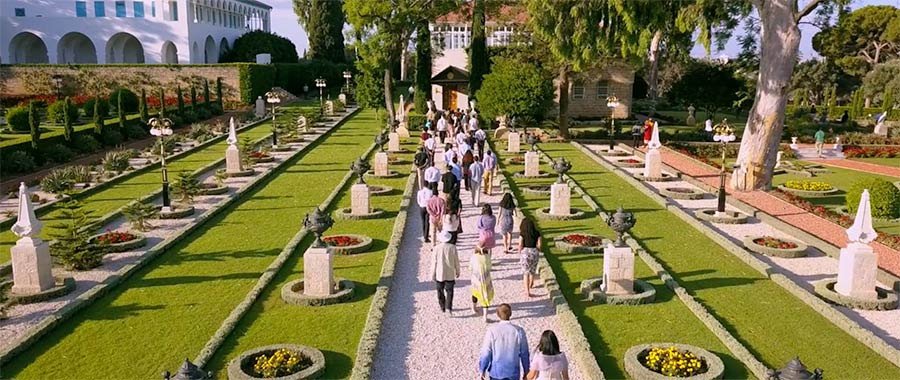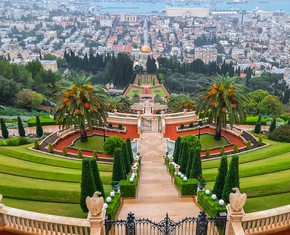The views expressed in our content reflect individual perspectives and do not represent the authoritative views of the Baha'i Faith.
Let us move back in time from this year, the bicentenary of Baha’u’llah’s birthday, to the year 200 CE, the bicentenary of the birth of Jesus.
At that time, the politically and culturally dominant power inside a wide circle around the Mediterranean region was the Roman Empire. Signs of crisis and decline were already in evidence. Christianity was an obscure movement, deemed irrelevant or a minor nuisance to people of influence. Tacitus and Suetonius, the foremost Roman historians in the early second century, only mention Jesus and his followers in passing.
Edward Gibbon (1737-1794), in his monumental History of the Decline and Fall of the Roman Empire, ignores Christianity until chapter XV, some 500 pages into the narrative, which by then describes events in the 4th century. That 15th chapter begins as follows:
A candid but rational inquiry into the progress and establishment of Christianity, may be considered a very essential part of the history of the Roman Empire. While that great body was invaded by open violence, or undermined by slow decay, a pure and humble religion gently insinuated itself into the minds of men, grew up in silence and obscurity, derived new vigor from opposition, and finally erected the triumphant banner of the cross on the ruins of the capitol ….
Gibbon, the Enlightenment man–he wrote this passage shortly before the French revolution–was no friend of religion. An author with a more friendly disposition might have written that the revelation of Christ “gently transformed the hearts and minds of women and men …”
Jesus did exactly that through his life and teachings, presenting age-old spiritual verities in a way that resonated with the exigencies of his time. The Roman Empire in the West did not outlast the 5th century, while the transformational power of Christianity has continued to this day, notwithstanding the checkered history of political power and cultural domination exercised by some in the name of Christendom.
Now fast forward to 2017, the year we celebrate the birthday of Baha’u’llah. The new dispensation calls on a humankind caught in the dual trap of (horizontal) fragmentation and (vertical) stratification to heed the same spiritual teachings supplemented by social teachings that address the crying needs of the modern age:
Men at all times and under all conditions stand in need of one to exhort them, guide them and to instruct and teach them. Therefore He hath sent forth His Messengers, His Prophets and chosen ones that they might acquaint the people with the divine purpose underlying the revelation of Books and the raising up of Messengers, and that everyone may become aware of the trust of God which is latent in the reality of every soul. – Baha’u’llah, Tablets of Baha’u’llah, p. 161.
Baha’u’llah’s message is a call to action in the spirit of unity and cooperation of all men and women—a spirit that leaves behind all prejudices and outdated social assumptions, a spirit that embraces humanity as one family and the planet as one country, a spirit that sets the parameters for a moral clarity that a global society must learn to internalize.
The documentary film Light to the World is, in large part, narrated by people from all walks of life, old and young, living in the east or west, north or south, speaking in different languages and dialects. We are not told their names and can only guess where they hail from. Seeing their radiant faces and hearing the enthusiasm in their voices is what makes the point. Their appearance on screen is compelling testimony of the spirit of unity in diversity engendered by Baha’u’llah’s message.
The movie also makes us realize, in a few short vignettes, that the early history of the Baha’i Faith is not unlike that of Christianity. Both Faiths, and others as well, began with quiet community-building in the face of indifference, mockery, and persecution, in combination or in sequence. This commonality is touched on in God Passes By, the history of the Baha’i Faith during its first century, written in 1944 by Shoghi Effendi, the Guardian of the Baha’i Faith. The foreword contains a passage that echoes Gibbon’s words quoted above.
… the history of the first hundred years of its evolution resolves itself into a series of internal and external crises, of varying severity, devastating in their immediate effects, but mysteriously releasing a corresponding measure of divine power, lending thereby a fresh impulse to its unfoldment, this further unfoldment engendering in its turn a still graver calamity, followed by a still more liberal effusion of celestial grace enabling its upholders to accelerate still further its march and win in its service still more compelling victories. – Shoghi Effendi, God Passes By, p. xiii.
These are not understood to be victories at the expense of other religions, but rather victories in concert with them. A close reading of the Baha’i writings makes that very clear. The unity of religions is one of the principal teachings enunciated by Baha’u’llah. His Book of Certitude and Hidden Words are catalysts for human souls to realize that their spiritual outlook or faith traditions have common roots and, ultimately, a common goal. This goal, shared indeed by all humanity, can only be the well-being of all creatures on the planet, implying the well-being of the planet Earth itself.
Baha’is, residing in literally every country on the globe, recognize Baha’u’llah as the light of unity to the world. The documentary highlights, through the voices of souls inspired by Baha’u’llah, ways of making the planet Earth a better home for future generations. It invites all of us to contribute to this world-embracing effort in our professional, social, and spiritual life.
















Comments
Sign in or create an account
Continue with Googleor